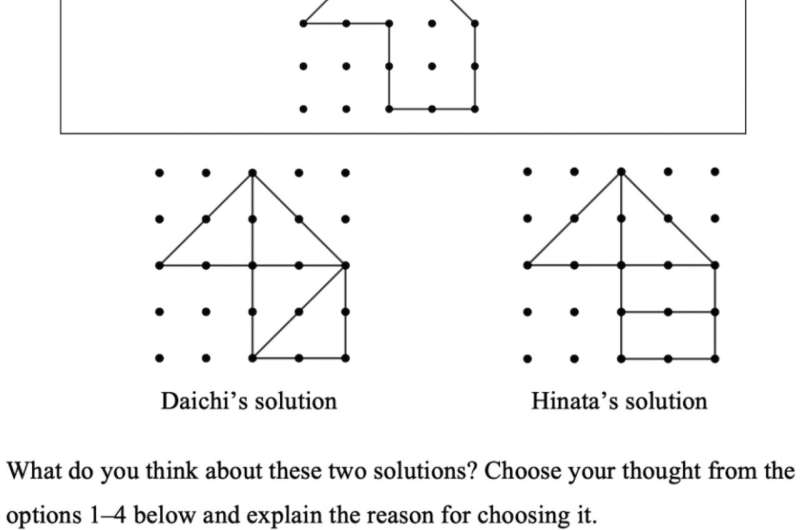This article has been reviewed according to Science X's editorial process and policies. Editors have highlighted the following attributes while ensuring the content's credibility:
fact-checked
trusted source
proofread
Developing task design principles to foster students' recognition of relativity of truth in math education

Although a typical mathematical task has a single correct answer, in some cases, the assumptions of a proposition determine its truth. Such relativity of truth plays a major role in the development of mathematics.
Furthermore, in our daily lives, we must identify assumptions that underlie each other's discussions and clarify such assumptions for better communication. Hence, students' recognition of the relativity of truth involving assumptions must be developed; however, how to encourage such development in primary and secondary education remains unclear.
To address this issue, the researchers have developed principles that support the design of mathematics tasks. Contrary to typical mathematical tasks, the researchers introduced an innovation in which the conditions of tasks are intentionally made ambiguous, directing students' attention to the task assumptions.
The study is published in Cognition and Instruction.
The researchers collaborated with primary and secondary school teachers to implement research cycles, each of which composed of designing a mathematical task, implementing it in one or more classrooms, and evaluating such implementation. Based on these research cycles, they developed task design principles, which involved creating a task open to different legitimate assumptions and conclusions by intentionally leaving some of the task's assumptions implicit or unspecified, and demonstrated the effectiveness of these principles.
The task design principles developed in this study allow teachers to design relevant tasks independently and implement them in their classrooms, which would foster their students' recognition of the relativity of truth in different circumstances.
More information: Kotaro Komatsu et al, Introducing Students to the Role of Assumptions in Mathematical Activity, Cognition and Instruction (2023). DOI: 10.1080/07370008.2023.2293695
Provided by University of Tsukuba





















